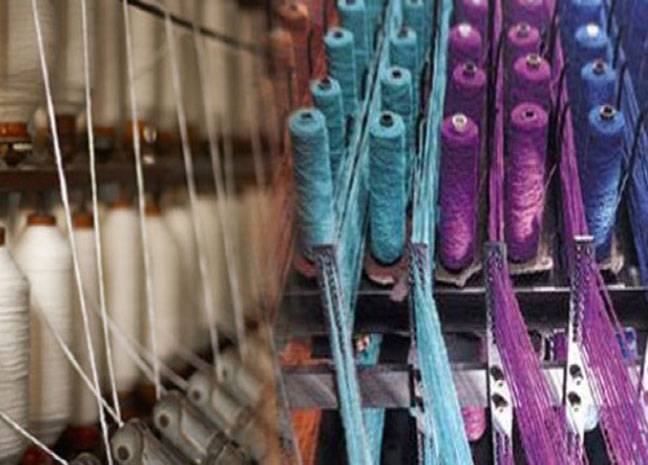LAHORE - Zahid Mazhar, Vice Chairman All Pakistan Textile Mills Association (APTMA), on Wednesday said that the government has once again lost the opportunity to revive the national economy through federal budget 2017-18.
In a statement, he said, “The current budget has failed to support the export oriented industries including textiles.”
He said, “The government has failed to bring in fundamental reforms to encourage exports, industry and employment. The government has not announced any measures to generate employment, promote exports and encourage import substitution.” He said, “The industry had requested reduction in turnover tax. On the contrary the government has increased turnover tax from 1 percent to 1.25 percent.” He pleaded for reduction in the minimum turnover tax to 0.25 percent.
He said, “The government has imposed 2 percent further tax on supplies to unregistered persons, it should also do away with the imposition of 2 percent further tax on the textile industry since the industry gets burdened with 2 percent additional cost as the end users do not pay this tax.”
He said, “Presently the system of zero rating is distorted and is actually not zero rating in true spirit. It needs some changes because there is no zero rating on some of the inputs.” He requested the government that before passing the federal budget from the National Assembly it should ensure zero rating of all inputs including packaging materials, spare parts and fuel and energy in true spirit.
Mazhar also stated, “The government has again extended delay in arranging timely refunds of sales tax which is crippling the liquidity of the industry, which will further lead to disastrous consequences. Presently an amount of more than Rs. 200 billion is stuck up in delayed refunds of sales tax resulting in creation of severe liquidity problem of the industry. This should be addressed on immediate basis.”
He demanded immediate payment of all refunds for which RPOs have been issued. He said, “All unprocessed refund claims should also be processed and paid by August 14, 2017 to improve liquidity of the textile industry.”
He further said, “Unfortunately the government’s priorities do not include the textile industry which is earning about 60 percent of the foreign exchange through exports for the country and providing more than 38 percent employment in the manufacturing sector has been hit hard because of shortage, high price and duty on the import of raw materials including cotton and synthetic fiber.”
He said, “The situation is further aggravated due to high cost of energy both gas and electricity as compared to the regional competitors. The government should remove the levy of Gas Infrastructure Development Cess (GIDC) on the system gas.”
He further demanded, “The government provides gas at the regionally competitive rate of Rs. 400/MMBTU as was earlier announced by ECC in November 2016 but was not implemented. The rate of re-gasified liquefied natural gas (RLNG) should also be reduced. The electricity tariff for independent feeders should be Rs. 7 kwh without levy of surcharges.”
Mazhar said, “The textile industry demands practical measures and not mere announcements. The export-led growth package announced by Prime Minister Nawaz Sharif in January this year for textile industry was merely an eyewash, as only an amount of Rs 1 billion has been released by State Bank of Pakistan (SBP) so far and government has budgeted a meager amount of Rs. 4 billion only for the next financial year against the total package of Rs. 180 billion for a period of 18 months based on the requirement of Rs 10 billion per month.”
In order to arrest the continuous decline in exports of textiles and clothing, he demanded implementation of the Rs. 180 billion export-led growth package announced by the prime minister of Pakistan in letter and spirit. He requested the government that, “All incentives announced in the Prime Minister scheme should be implemented without any delay.”
“Since the country has already suffered huge losses due to failure of cotton crop for the last two consecutive years, the Vice Chairman APTMA further demanded the government to ensure availability of raw materials to the industry by continuing the policy of import of cotton without duty and sales tax and review its decision to re-impose custom duty and sales tax on import of cotton as it will be suicidal for the textile industry.
He demanded the government to properly address the problem of shortage of cotton by putting emphasis on the research of cotton and getting better production and yield to meet the consumption requirement of the country.
He said, “Our annual requirement of cotton is 15 million bales whereas we have produced around 10 million bales each in the last two seasons. If proper attention is given then the crop size can even reach 20 million bales which can give a boost to the textile industry and the economy of the country.”
Mazhar said, “The trade deficit this year is expected to reach $31 billion as imports are projected to close at $51 billion as against estimated exports of $20 billion. However the textile industry of Pakistan is capable enough to reverse this negative trend.”
“It can generate employment and at the same time achieve export target of 12 percent of the GDP ($36 billion) provided the decisions and policies are made to support it instead of discourage it. The country has a potential to reach annual GDP growth of 8 percent provided the government immediately starts giving attention to the export sectors especially the textile industry,” he said.
“Otherwise our dream of economic growth might turn into a nightmare and then even the China Pakistan Economic Corridor (CPEC) would not help us to survive in the international market and we will be reduced to a trading based country,” he said.






